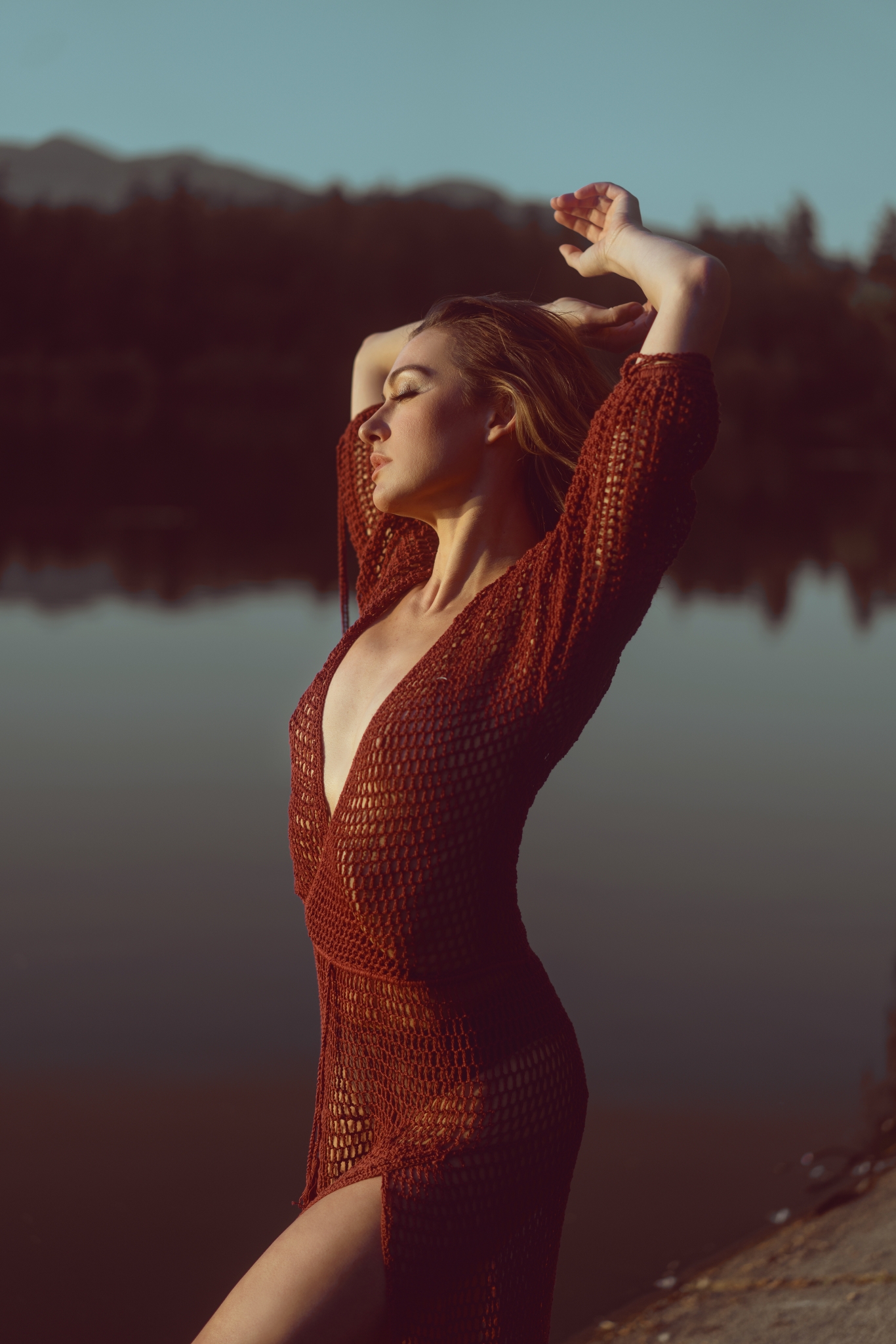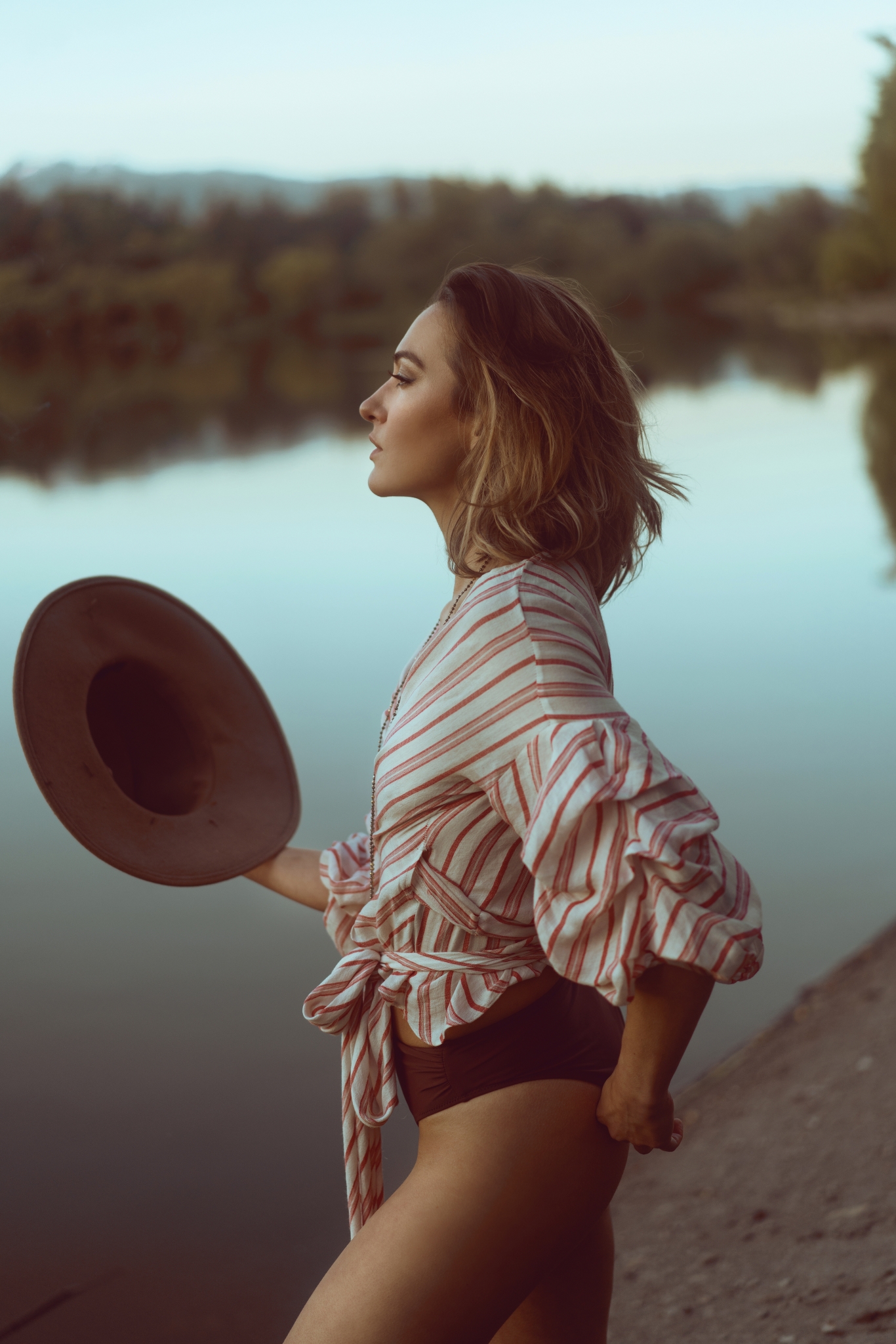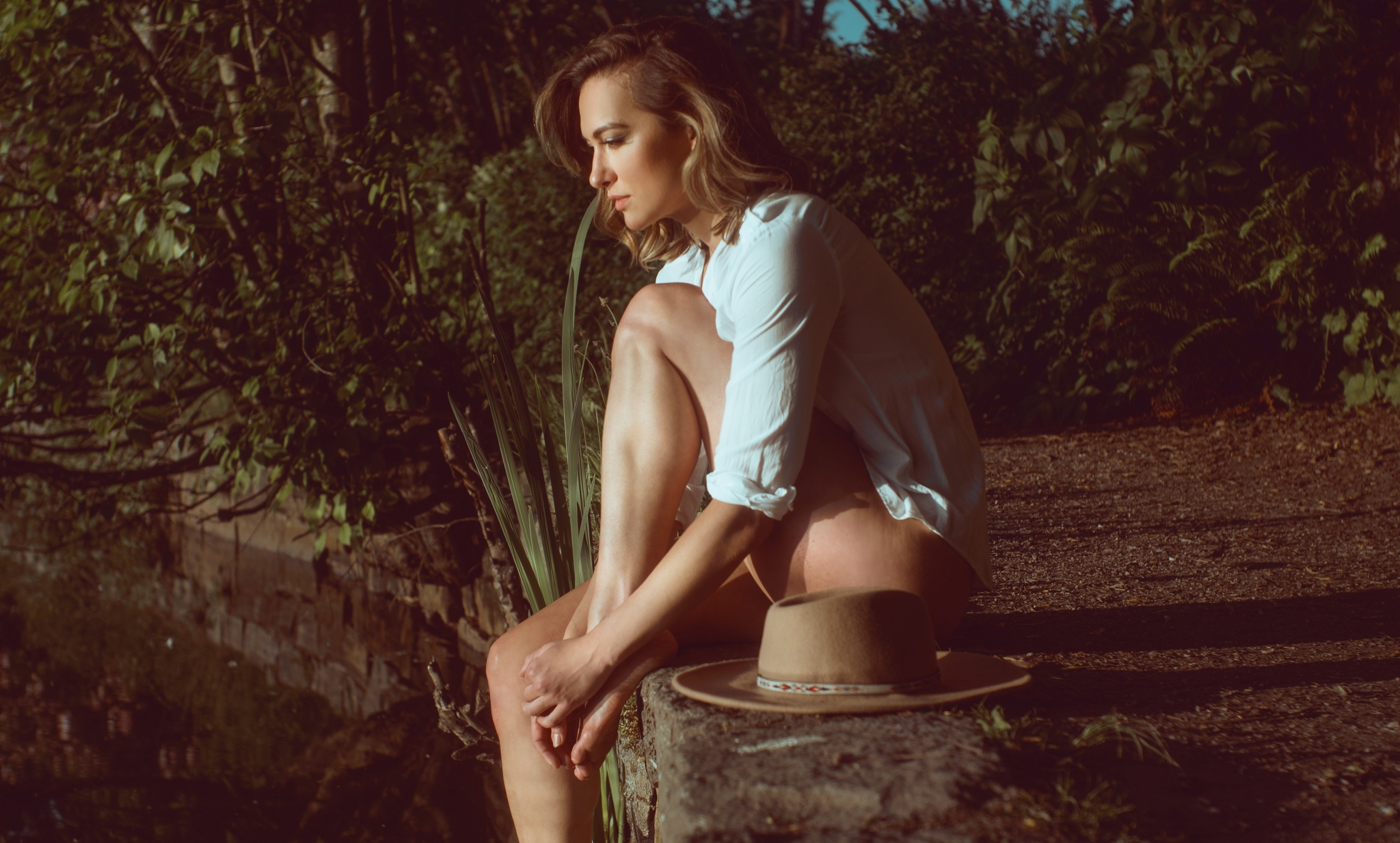
Tasya Teles is a Brazilian and American actress living between Los Angeles and Vancouver. She is well known for her character Echo in CW’S Hit Tv Show The 100. It has returned for its final season this year. Tasya has guest-starred on shows such as “Prison Break”, “Supernatural” and “Travelers”. She’s accepted to answer our questions about the industry, about her acting in the show The 100 and to give us a glimpse into her vision for 2020 and moving forward.
Photos by Jason Hyniuk
Flanelle : What made you interested in acting? What keeps you passionate and continuing to grow in the industry.
Tasya : What keeps me passionate about developing as an artist, is the prospect that a well-told story can change lives, open minds, and ultimately contribute to a more compassionate society. I love the challenge of embodying different characters, how they move, and how to channel them vocally and physically. It is such an interesting process, and the journey of discovering a character is so immersive and exciting, I just love it!
2. How are you feeling about the show, the 100, coming to an end?
I’m feeling a mix of so many emotions! I’m definitely sad to say goodbye to an important chapter of my life, but I am also excited to try on different hats and test myself with new projects. Mostly my heart is warmed by everything that our cast and crew have accomplished over the years. I feel proud to be a part of such an interesting show that has pushed boundaries in so many ways.
3. How do you feel about the season wrap of your character?
I feel good about it. Echo is a strong character, and I hoped for an honorable ending for her on the show. All things considered, I’m happy with how things wrapped up for her.
As an actor do you prefer playing characters that are like you, or that are the complete opposite?
The more differences you have with a character, the more opportunity you’ll have to grow and develop as an actor (and as a human being). Echo certainly stretched my understanding of humanity, as I dove into real-life stories with extreme experiences that I’ve never personally lived, but have had a chance to explore thanks to acting. With that said, sometimes when you’re reading a script, there is something that grabs you about a character. A familiarity, or a recognition of yourself in that person, almost as if the role was written for you. I love it when that happens because you immediately identify with something. You know that you can bring nuance to the performance that’s authentic because it’s informed by personal life experience. I probably love that the most.
Can you tell me about some of your favorite projects you’ve ever worked on besides the 100.
Last year I worked on a movie called “Break Even,” which definitely makes it to the top of the favorites list. Action films are so much fun to shoot because you get an opportunity to do some really wild things. Plus, our cast and crew were so cohesive. There were so many laughs and inside jokes by the end of the film. It was just such a great experience all around.
We’re living in truly unprecedented times, especially for artists. How do you stay creative during these difficult times?
I love writing and impromptu dance parties. Writing untangles all the noise in my head when I feel overwhelmed or anxious. Impromptu dance parties are something that I just started doing in the morning before work when I was too tired to work out but knew that my body needed to move.
The writing clears my head, and the movement makes me feel physically free, and a little silly. I’m not a dancer and have no dance training, so I just put on music that I love, and boogie around like nobody’s watching (and thank god nobody’s watching, because I look ridiculous). Inevitably I end up laughing at myself, which is an added bonus. It’s a great way to start the day; a little journal session, a little jiggle, a little giggle, and off we go! Silly, but effective ;)
7. Do you think the film and TV industry is going to change after this pandemic, and how so?
There will definitely be changes, but what they look like is anyone’s guess. Covid exposed many of our systemic breakdowns and how we, as a society, tend to ignore or undermine the people that need help the most. Hopefully, we’ll see more stories that deal with mental health in an honest way, like King of Manhattan, which I think is a great example of what I’m talking about. We need more stories that explore the pandemic of mental health, how common it is to feel anxious, stressed, scared, etc., and how people manage these feelings.
8. Do you have advice for artists on how to deal with the current situation, and stay hopeful?
To me, hopelessness is the feeling that you’re stuck in a bad situation or can’t change your circumstances. Staying hopeful requires one to develop an acceptance that tough times are there for a reason. Tough times force you to stop your regular programming and dig yourself out. It’s not fun, but when I feel stuck or hopeless, I have to remember that there’s a lesson somewhere that I haven’t unearthed yet, so I keep digging. It’s impossible to live fully without challenges, so whatever is dominating your mental space, get curious about it. Pull the thread, and let your intuition guide you. The magnificent often underestimated magic of being creative is that we when we heal ourselves, we heal the world around us. I find tremendous comfort in that, and that’s what gives me hope.


